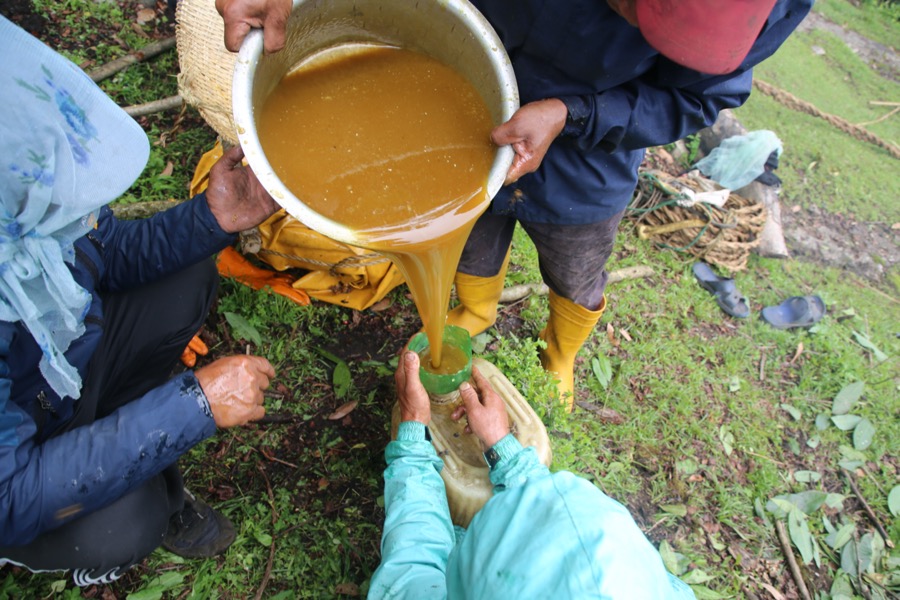Kathmandu: In a brewing crisis for Nepal’s honey industry, local producers are grappling with dwindling sales and the looming threat of leaving the sector altogether. The root cause of this distress lies in the dominance of Indian honey in the Nepali market, leaving indigenous honey largely unsold.
Expressing their grievances, farmers are pointing to the stark contrast between the intermittent sales of Indian and foreign honey brands and the plummeting demand for domestic varieties. They have now turned to the government, appealing for urgent interventions such as proper market arrangements, fair pricing structures, and facilitation to sell their produce.
Representatives from the Federation of Nepal Beekeepers took their concerns directly to Agriculture Minister Jwala Kumari Shah on Thursday, presenting a memorandum outlining their plight. Outgoing Federation president, Shiva Prasad Paudel, issued a stark warning, suggesting that unless the government steps in to promote and market Nepali honey, farmers may resort to pouring their unsold honey onto the streets of Kathmandu as a form of protest.
They said that approximately 4,000 metric tons of locally produced honey have remained unsold and emphasized the urgent need for Nepali honey to be prioritized over multinational brands like Dabur in marketing campaigns, lamenting its overshadowing by imports, particularly in urban centers like Kathmandu.
In their plea to the agriculture minister, farmers are advocating for a 60% tax on honey imports, citing the unfair advantage of cheaper Indian honey flooding the market. They are also calling for a complete ban on Indian honey imports from October to April to safeguard the interests of local producers.
